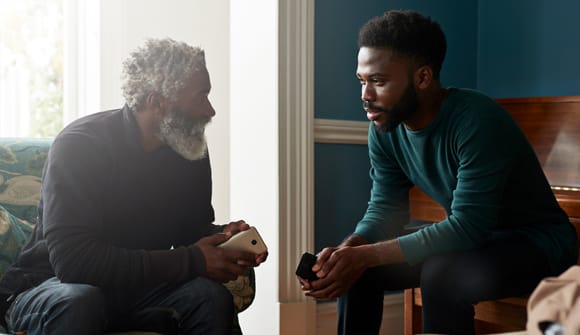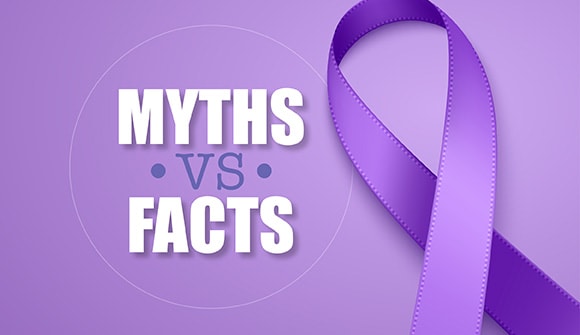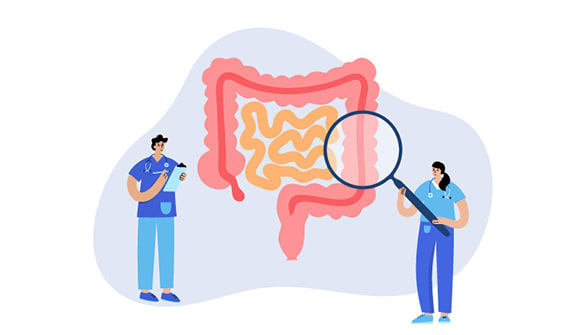Finding the words
What to say when you don’t know what to say to a newly diagnosed cancer patient.
Article Author: Johnny Woodhouse
Article Date:

What do you say to someone who is battling cancer or has just been diagnosed?
Finding just the right words can be daunting, but knowing what to say (and what not to say) can mean the difference between being supportive and creating more stress or anxiety for the cancer patient.
“It’s crucial to care for the mind, body and spirit of those battling cancer, and to do so in an empathetic, supportive and nonjudgmental manner,” said George Royal, PhD, a licensed psychologist specializing in Clinical Health Psychology at Baptist MD Anderson Cancer Center.
Dr. Royal suggests the following tips to be supportive:
- Say: “I’m not sure what to say right now, but I want you to know that I love and care about you and will be with you during your cancer journey.”
- Ask: “How are you really doing?” Take time to listen and understand his or her experience, fears and questions. Do not make assumptions or tell someone he or she “should not” worry or feel a certain way.
- Act: Once you better understand the person’s feelings and concerns, make a plan to help. Be proactive in assisting with routine and daily tasks such as cooking meals, doing laundry, shopping for groceries, walking the dog, driving children to activities, cleaning the house and mowing the lawn. Don’t ask, “Is there anything I can do?” or say, “Call me if you need anything.” This puts the burden on the patient and can actually add to his or her stress.
Things to avoid include:
- False reassurance: “Everything is going to be fine,” or “At least you got a good kind of cancer.” These phrases minimize the patient’s concerns and may imply you do not understand or care.
- False understanding: “I know what you are going through is difficult,” or “I had an uncle with the same cancer.” Each cancer patient’s journey is unique.
- Platitudes: “Every cloud has a silver lining.” Cliché remarks aimed at quelling emotional unease may be unhelpful.
- Criticism: “I told you that you should have seen your doctor sooner!” Placing blame on the patient only increases his or her distress.
- Unsolicited advice: “You know, you should always get a second opinion.” Questioning the treatment plan may raise doubt and anxiety.
Studies show people do better emotionally during a crisis when they have strong support from family members and friends. Educating yourself about cancer, avoiding moral judgments, and staying connected throughout someone’s cancer journey are ways to be as supportive as possible when a loved one is diagnosed with cancer.
Dr. Royal said it’s critical that caregivers, family and friends address the emotional, spiritual and social effects of cancer, as these can be just as, if not more, devastating than the physical effects of cancer.
“If we focus only on the physical side of cancer, we have failed to address the true needs of patients and their family members,” added Dr. Royal. “Providing psychological, spiritual and social support are some of the keys to helping cancer patients and their families cope during times of fear, uncertainty and distress.”
Cancer patients struggle with a myriad of different emotions and challenges including:
- Anxiety, depression and anger
- Stress and uncertainty
- Pain and fatigue
- Fear of dying or of the cancer returning
- Body image issues
- Social isolation
Besides facing a life-altering illness, cancer patients must also adjust to new challenges, like taking time off from work to attend and recover from cancer treatments, finding caregiver support, or needing help with finances.
Most cancer centers, including Baptist MD Anderson, offer an array of support services, including outpatient social workers who are able to connect patients and family members with organizations that help with household bills.
Along with a clinical psychologist, a specially trained oncology chaplain provides spiritual counseling and support for patients and families facing difficult cancer journeys.
If you would like to speak with a nurse navigator at Baptist MD Anderson Cancer Center, call 1.844.632.2278.



